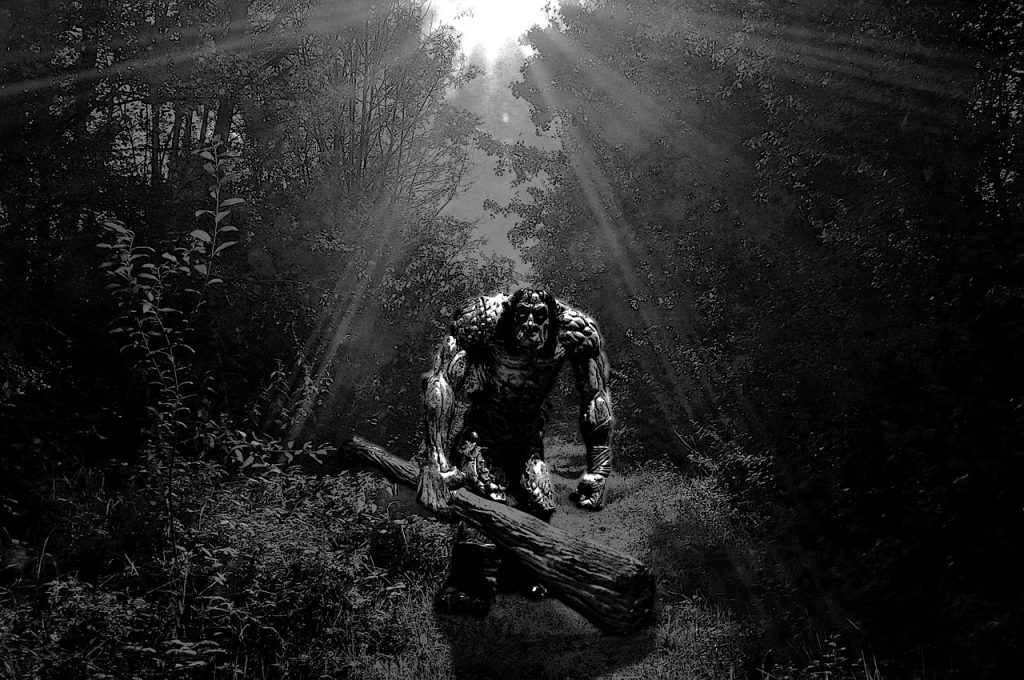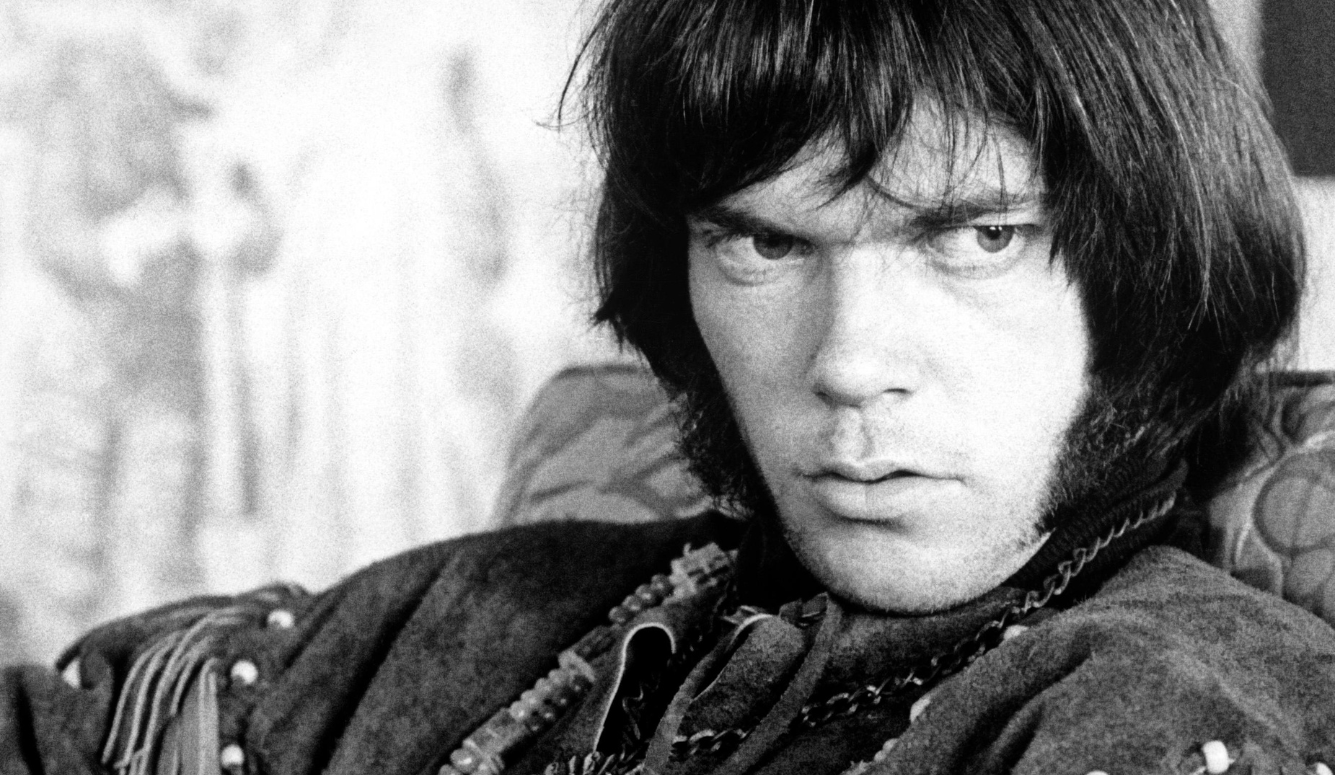Top Stories
Jung and the Trumpian Shadow
We do not live in the best of all possible worlds. There are monsters inside each of us. Those monsters must be made coherent, and given their place, or they will consume us.

Carl Jung was done a disservice by the sanitized spirituality of the New Age movement. Jungian archetypes were shoved into the same bucket as the zodiac, astrology, and healing crystals, lost in the blur of wishful thinking that had captured the late 1960s and 1970s and its desire to create a better society out of love and mercy alone. But the short-lived optimism of the sexual revolution and the hippie movement meant its demise in the 1980s, when the Reagan administration saw the rebels hang up their flowers and instead don suits, taking to Madison Avenue and extinguishing the flame of creative renaissance that wanted so badly to break free from the Cold War West.
Perhaps there is some parallel here with the Obama years culminating in the election of Donald Trump. During the Obama Presidency, American progressives became pacified, trading economic arguments for cultural dissatisfaction, forsaking the ideas of the New Deal for an emotional and ideological clamp upon the unconscious forces of racism and sexism. There was a pervasive sense that history had ended, that a centrist Democrat could potentially rule the West forever, and that the shadows of racism, sexism, and hate speech would finally be chased out of public society after the victory of Hillary Clinton, a female President.
Jung would not have been surprised by what followed. In The Philosophical Tree, he wrote:
Filling the conscious mind with ideal conceptions is a characteristic of Western theosophy, but not the confrontation with the shadow and the world of darkness. One does not become enlightened by imagining figures of light, but by making the darkness conscious.
American progressives believed that through a respectable politics, the psychology of hatred could be repressed through a combination of censorship and social pressure. They imagined that the march of progress was so inevitable that by shaming and denying the power of our worst impulses, we could create a paradise. But the ghosts of theosophy still haunt our politics. It seems today that the branches of the Jewish Kabbala’s Tree of Sephirot, answering to a cosmic balance between mercy and severity (as Valentin Tomberg wrote in his mystical magnum opus Meditations on the Tarot), has been ignored in favor of mercy alone. Compassion, empathy, and tolerance – all bundled into the package of political correctness – these forces alone would squash the shadow, our lower nature, and save us. Such was the promise of contemporary political correctness. But Jung would suggest that the politically correct are ignoring the very real severity in their own nature: “Everyone carries a shadow, and the less it is embodied in the individual’s conscious life, the blacker and denser it is…if it is repressed and isolated from consciousness, it never gets corrected.”
It is no mistake that “locker room talk” and “telling it like it is” was pitted against the false high horse of: “When they go low, we go high.” Donald Trump embodied the subconscious truth that the world is more shadow than light, that severity is more useful than mercy. Those who advocate the censorship of ‘hate speech’ online or in the public sphere are fully willing to accept severe authoritarianism in the name of mercy, an open contradiction.
Conservatives, particularly in the intellectual tradition of Alexander Solzhenitsyn and other anti-Communists, believe that the angelic heights of humankind are forever tied to their immutable and hellish depths. Every inch striving toward a perfect world is met with an inch striving toward absolute hell. This is an idea proposed by Jung, who said: “The fact is that if one tries beyond one’s capacity to be perfect, the shadow descends into hell and becomes the devil.”

This has consequential implications for the political world. If we strive to be utopians, and erase all forms of inequality, sweep away all profanity, heal the wounds of racism and take ourselves off the cross of sin, our own lesser nature will double-back against us, and refuse our motions every step of the way. In this way, the utopian unknowingly digs his own grave. This was certainly the case with Communism throughout the 20th century. But this fallibility of human perfection continues, seemingly forever.
In an essay titled “Feminism and the problem of supertoxic masculinity,” political scientist Justin Murphy makes an unconventional argument. In encouraging men to be passive, polite, and non-offensive through social pressure, most men will conform to that feminist standard out of a genuine unwillingness to be abrasive or do harm. But a small number of men who cannot be shamed, in a world filled with men who refuse to check them, will begin to dominate and rise through social hierarchies due to the simple fact that nobody knows how to stop those few men who embody the intolerable shadow the masses have repressed away. Murphy writes:
The problem is that when the baseline of masculine dominance expression is held below its organic tendency, defined simply as what men would do in the absence of cultural campaigns to defang it, this increases the potential payoff to those who dare exercise it, as there are more resources to dominate precisely to the degree that other men are not contesting them.
One could see this clearly during the 2016 Republican primaries. Jeb Bush was far closer to the feminist male ideal than Donald Trump ever was. Bush was tepid, meek, and asked for polite apologies. Trump refused to apologize, bullied him, and bulldozed him. Jeb was too used to the polite society of elite socialization to deal with a man who was, by comparison, an uncouth barbarian. Everyone across the political spectrum, from socialists to Trump’s supporters, thoroughly enjoyed watching Jeb, the civilized man who was promised everything, be devastated by a shameless and cruel competitor. People, regardless of their political views, enjoyed watching a man perceived as weak be totally dismissed by a morally darker but more interesting man.
Donald Trump rode a particular wave of attitudes into the Presidency, a response to a political climate that had grown too stale, conformist, and yes, politically correct. Trump embodied the dark charismatic strength of a man with real, actual weapons; a person who was dangerous, who provided in his image a callback to John Wayne, Tony Soprano, and the storied history of violent American men who, no matter how hard we try to wholly discard them, had some part of them that will never vanish from the human spirit, and which at last we must confront. Stories about anti-heroes are powerful not because they confuse us, but because they deeply satisfy our unconscious understanding of who we are. The victory of Donald Trump was another story about who we actually are.

But how do we confront the brute within our own souls? The election of Donald Trump suggested that denying and bullying away our sins would only cause them to multiply. Hillary Clinton’s disastrous campaign was encapsulated in a disastrous slogan: “America is already great.” This cry, for the eternal now, a permanent extension of the bloodless elite sensibilities of the Democratic Party, with all its entitlement to the votes of minorities and the poor, evoked a kind of rebellion in people. It emerged on the Left in the figure of Bernie Sanders. For all his faults, he projected an understanding of the pain of the working person, and advocated policies designed to regenerate America’s social safety net. When he vanished from the race, there was only one person left who spoke of American society – and consequently the American soul – as deeply rotten, and it wasn’t Hillary Clinton.
From his comments about the violence in America’s inner cities, the ‘hellhole’ of Chicago, his infamous history of sexual assault and lust, the belittling of his opponents and his overall severe demeanor, Donald Trump was a far more authentic representation of the human spirit than the sanitized public relations sensibilities that drove Hillary Clinton to defeat. Casting him as the brute did not work – we already know the world is brutal, and Clinton has herself been implicated in America’s history of racial oppression, from the 1994 Clinton crime bill, which exacerbated the crisis of 1 in 4 black children born in 1990 growing up with a parent imprisoned, to her State Department advocating a cut in the Haitian minimum wage down to 31 cents an hour. Clinton was hit hard from the Left on both issues. With no moral high ground to stand on, all we had was polished corruption staring brazen rebellion in the face. “Better to rule in hell, then to serve in heaven,” cried the rust belt, as it betrayed the Democrats, who felt entitled to their votes, and joined the ranks of the ‘deplorables’, who in the eyes of elite liberal America were nothing more than the ranks of the damned.
In pretending that Donald Trump has nothing to do with us, that he is an aberration, a break from the ‘norms’ of polite politics, the Democrats distanced themselves from reality. In fact, hyper-masculine and hyper-aggressive attitudes have a great deal to do with the gene pool. The Left may cringe at the notion, but many leftists would do well to acknowledge their own shadow. Where does the recent explosion of commentary in favor of ‘punching Nazis’ and forcibly censoring speech come from? The thrill and the rush of violence, aggression and anger is simply more relatable than the sanitized gloss of politically correct culture. That is why antifa is so popular on the left. That is why Donald Trump is so beloved on the right.
In seeking a society of pure mercy, without trolling, without insults, without any inequality, violence, or biased behavior of any kind, progressives inadvertently created their worst nightmare. They tried to suppress the collective shadow of humankind through moral policing and public shaming, and instead only begat a growing animosity directed at the cathedral of their false dogmas.
One sees this clearly on Twitter – how fast any nuanced opinion dissolves into a war of pure good against pure evil. When James Damore released his infamous Google memo, left-wing Twitter considered it to be a revival of 19th century eugenics, literally ‘calipers’ and ‘skull measurement’ masquerading as science.
The Oz posted the idiot Google manifesto guy.
We're mere weeks away from free phrenology calipers for subscribers. https://t.co/2A2OkT8FxL
— ?? (@DavidParis) August 13, 2017
To admit any biological difference between the sexes, after all, is to admit the possibility that we are not all the same, and worse, to admit that human nature does exist materially to a large degree, and cannot simply be swivelled to ride on a different axis out of infinite goodwill alone. More complicated measures are needed to address inequality. But the Left, as it stands now, will hear none of them. Admitting serious differences of any kind is sexist. Thus, the ‘sexists’ fade into their own gloomy shadow, and cement support for their beliefs where there is no worldwide community to drag and shame them.
No dialogue becomes possible. So, the discourse between mercy and severity, between paradise and infinite painful toil, vanishes. Then, we are left only with raw force. Can you censor me before I offend you? That is the only question left to the public domain. But dialogue between mercy and severity, between the striving self and the burdensome shadow, must exist. If it vanishes completely, then the collective shadow of society, repressed, will only explode in more and more hideous ways.
We do not live in the best of all possible worlds. There are monsters inside each of us. Those monsters must be made coherent, and given their place, or they will consume us. What is the place of a monster? That, in many ways, is the purpose of life – to understand and tame the hell within you. But when we deny its power, and seek to chain and ignore it, the monster only turns against us. When we claim we are good, it takes the throne and tells us we know nothing.
We have much work to do.
Alexander Blum is a science fiction writer.






